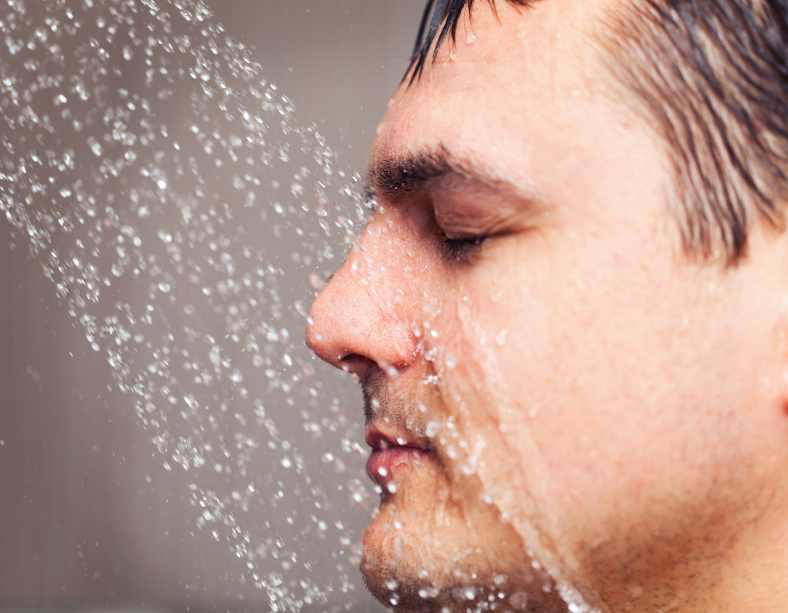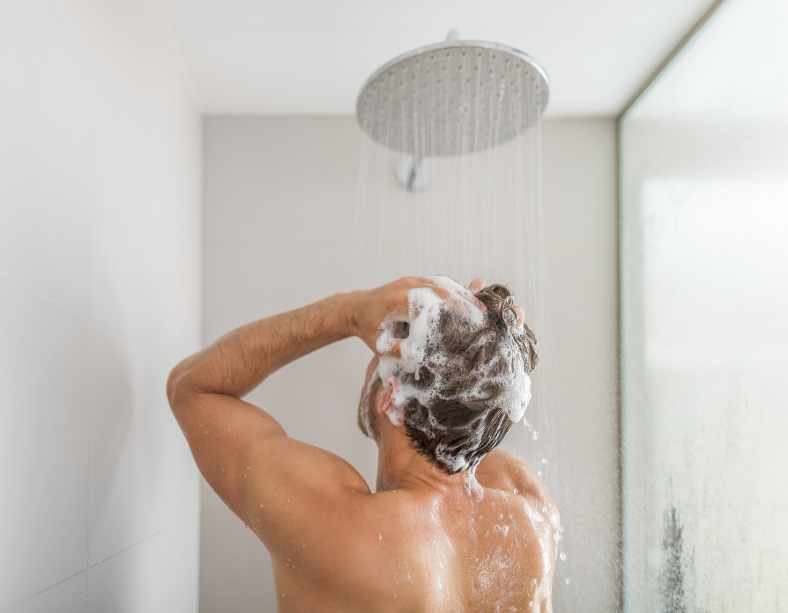Hot Vs. Cold Showers: Which Is Better For You?
Stepping into a steamy hot shower can feel heavenly, especially on a cold winter morning. But lately, there’s been a lot of talk about the health benefits of taking an ice cold shower instead.
Cold showers have been recommended as a way to potentially improve circulation, boost mood and energy levels, strengthen immunity, and even burn calories. But do icy water blasts truly offer meaningful health perks? Or are hot, relaxing showers still the better choice for most people?
In this article, we’ll explore the claims behind the potential benefits of hot vs. cold showers. We’ll look at what happens to your body when you take steamy versus chilled showers and see what the research says about the pros and cons of both options.
Read on to learn if cold and hot showers have the edge!

Potential Benefits of Cold Showers
Taking a cold shower might sound like a challenge, but it’s actually a simple way to give your health a boost. Here are the cold shower benefits:
Boosts Your Energy
Ever notice how you feel wide awake after a cold shower? That’s because taking cold showers makes your body work a bit harder to keep you warm, which wakes up your whole system. It’s like a natural, zero-calorie energy drink that gets you going in the morning. It is also believed to potentially reduce stress and improve your mood.
Helps Your Muscles Recover
If you’re feeling sore after working out or doing yard work, a cold shower can be just what you need. The cold helps reduce muscle soreness by calming down the inflammation, almost like putting an ice pack on a swollen ankle.
Keeps Your Skin and Hair Looking Great
Hot water can dry out your skin and hair, but cold water does the opposite. It helps keep your skin tight and your hair shiny by not stripping away the natural oils that protect them.
Strengthens Your Immune System
Regular cold showers can potentially strengthen your immune system. Think of it like a mini workout for your immune system, making it stronger and more ready to tackle invaders.
Aids in Weight Loss
Cold showers can potentially help you lose weight by activating the brown fat in your body, which burns calories to generate heat and keep you warm.
So, while it might take some courage to turn that dial to cold, the health perks can make it well worth the initial shiver!

The Cons of Cold Showers
Although cold water showers can be invigorating and offer several potential health benefits, they’re not without their drawbacks. Here are some specific reasons why cold showers might not be for everyone:
Initial Discomfort
The first splash of cold water immersion can be quite a shock to the system. This sudden cold spray chill can be especially jarring in the morning or during colder months, making it a tough habit to stick with for some.
Not Ideal for Winding Down
If you’re looking to relax after a long day, a cold shower might not be the best choice. Unlike warm water, cold doesn’t help to soothe and unwind tense muscles, which can be a downside for those seeking relaxation and stress relief.
Potential Aggravation of Certain Health Conditions
People with specific health issues, such as Raynaud’s disease, where blood vessels in the fingers and toes can overreact to cold, should be cautious. Cold temperatures could trigger uncomfortable symptoms for them. Similarly, those with respiratory conditions like asthma might find that cold air and water exacerbate their symptoms, leading to discomfort and difficulty breathing.
Can Be Too Invigorating Before Bed
While the energizing effect of a cold shower can be great in the morning, it might be counterproductive if you’re trying to wind down for a peaceful night’s sleep. The body naturally craves warmth and comfort before bed, and a cold shower can disrupt this natural sleep preparation process.
Best Temperature for Taking Cold Shower
When it comes to cold showers, the temperature that strikes the perfect balance between refreshing and comfortable falls between 50°F to 60°F (10°C to 15°C).

Potential Benefits of Hot Showers
Indulging in a hot shower offers comfort and brings a host of specific benefits to your body and mind:
Muscle Relaxation and Pain Relief
Warm showers can act like a gentle massage for stiff and tired muscles. It may help relax knots and ease muscle tension in areas like your back, neck, and shoulders. If you’ve been standing all day or have sore muscles from exercise, the hot water helps to alleviate the discomfort.
Improved Blood Circulation
Hot water may cause blood vessels to dilate, potentially improving blood circulation throughout the body. This increased blood flow accelerates the body’s natural healing processes, bringing more oxygen and nutrients to areas that need repair. Better circulation can also lead to reduced blood pressure and improved heart health over time.
Respiratory Relief
The steam from a hot shower can potentially work wonders for clearing up nasal congestion and relieving symptoms of colds or allergies. It acts as a natural decongestant, helping to open up the nasal passages and sinuses, making it easier to breathe. For those with asthma or bronchitis, the warm, moist air can also help soothe respiratory passages.
Skin Detoxification
A hot shower can open up your pores, cleansing the skin. The steam can help release toxins trapped below the skin’s surface, while the water washes them away. This process cleanses and rejuvenates your skin.
Stress Reduction and Mental Wellness
Hot showers can potentially soothe beyond the physical to the mental. The warmth and isolation of a shower can create a sense of tranquility, helping to melt away stress and anxiety. It’s a moment of solitude where you can relax, unwind, and let your thoughts wander, providing a mental reset after a long day.

The Downsides of Hot Shower
While a warm shower can be the ultimate comfort, especially on a chilly day, it’s important to be aware of its potential drawbacks.
Here’s what to consider before going in for a warm water shower:
Skin Dryness and Irritation
Hot water can strip your skin of its natural, protective oils, leading to itchy skin, dryness, flakiness, and worsening of conditions like eczema or psoriasis. The protective barrier of the skin can become compromised, making it more susceptible to irritants and allergens.
Hair Damage
Just like your skin, your hair can suffer from too much hot water. High temperatures can open up the hair cuticles, leading to loss of moisture and increased frizz and breakage. Your hair might lose its natural sheen and become more difficult to manage.
Increased Blood Pressure
For those with pre-existing cardiovascular conditions, the dilation of blood vessels caused by hot showers can lead to a temporary spike in blood pressure. This isn’t typically a concern for healthy individuals, but it’s something to be mindful of if you have heart-related health issues.
Dehydration Risk
Prolonged hot showers can lead to mild dehydration. The heat can make you sweat, even if you don’t realize it, which means you’re losing water that your body needs.
Faintness or Dizziness
The combination of a hot environment and steam can sometimes lead to feelings of dizziness or faintness, particularly if you’re in the shower for a long time. This is due to the heat causing your blood vessels to expand and blood pressure to drop, which can reduce blood flow to the brain.
Moderation and mindful temperature control can help mitigate these risks, allowing you to enjoy the comfort of a hot shower while minimizing its potential downsides.

Best Temperature for Taking Hot Showers
Finding the sweet spot for your hot bath temperature is key to reaping the benefits without overdoing it. The ideal range is between 98°F to 105°F (36.5°C to 40.5°C).
Adjusting your shower to this temperature range can make your hot shower both a therapeutic and a safe part of your daily routine.
In Summary
When it comes to deciding between steamy hot or cold showers, both have compelling health benefits depending on what you’re looking for.
The choice comes down to personal preference and lifestyle needs. For many people, the best approach is to mix it up.
You can also alternate between hot and cold in the same shower session to get the benefits of both. Just be sure to start warm and ease your way to cold to minimize discomfort.
No matter which temperature you prefer, cold or hot shower, keep the shower under 10 minutes. When in doubt, aim for lukewarm to find the happy medium.
So go ahead and experiment to find your optimal shower routine. Both hot and cold have their merits – listen to what your body craves each day!